Local history: Hollywood star David McLean, who played Marlboro Man, was an hombre from Akron
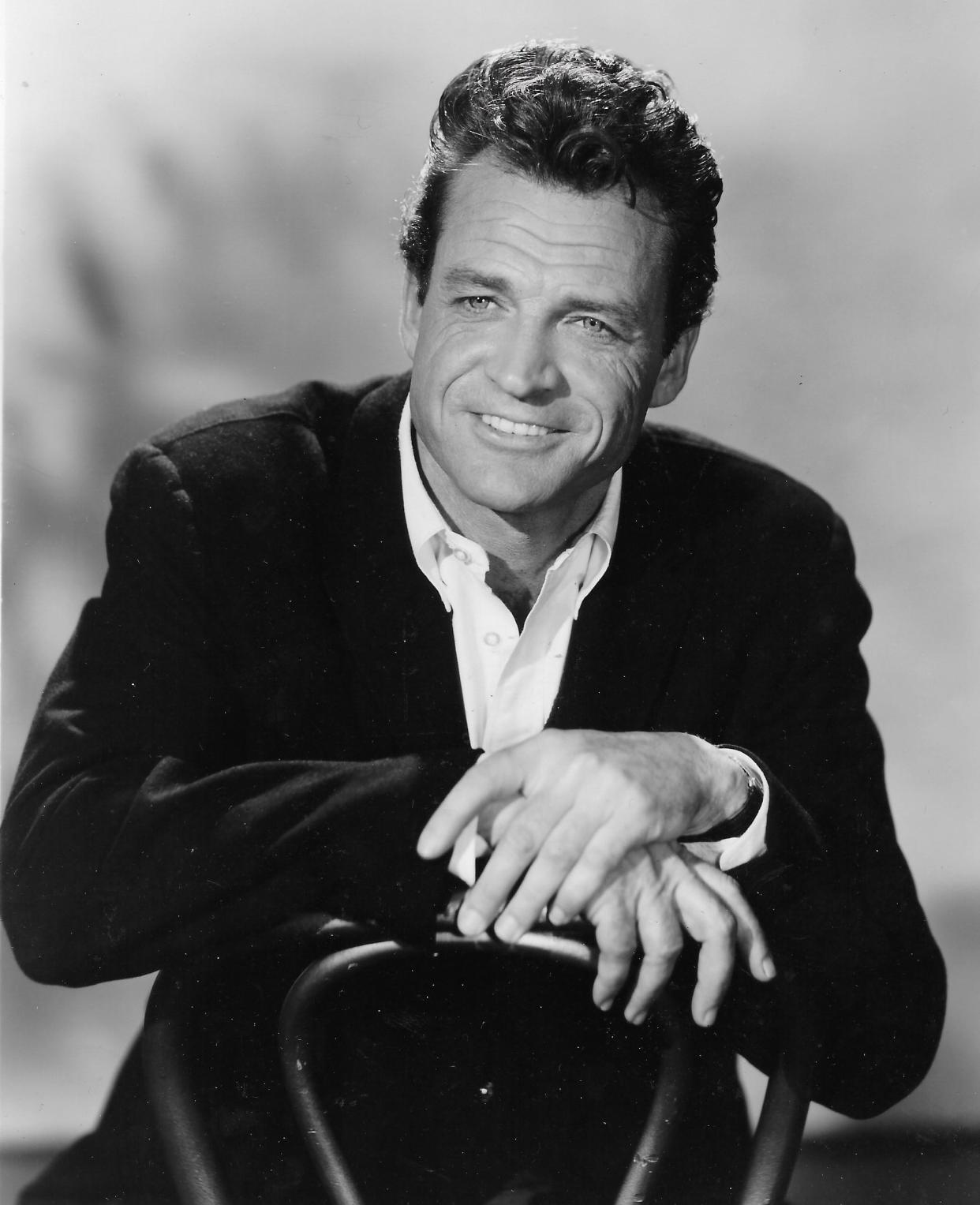
Handsome, rugged and brawny, David McLean embodied the ideal of the American West.
As a Hollywood cowboy, he lived in a world of cattle drives, saloon fights, horse chases, stagecoach heists and quick-draw duels.
More: Photos: Actress Melina Kanakaredes through the years
If you don’t know the name, you probably know the face.
The Akron actor starred in motion pictures and television shows, but he might best be known for appearing in cigarette commercials.
The Marlboro Man was a role that he lived to regret.
McLean, whose real name was Eugene J. Huth, would have turned 100 this month. He was born May 19, 1922, to Henry and Lauretta “Laura” Huth.
“He’s one of 12,” said sister Barbara Hill, 90, the last surviving sibling of the Huth family, who now lives in Arizona. “We all go by numbers. I’m No. 9.”
What number was Gene?
“Let’s see,” Hill said. “Let me count this out. 1, 2, 3, 4 … He’s 5.”
In chronological order, the Huth children were Pauline, Gilbert, Rita, Marian, Eugene, Theodore, Elizabeth, Albert, Barbara, Richard, Henry and Daniel.
“There were never 12 of us home at once,” Hill explained. “When I was born, my oldest sister was married.”
The family moved from Randolph to Ellet when it was a separate village from Akron. Henry had saved enough money from his Goodyear job to buy three lots on Wirth Avenue and build a ranch home in 1920.
“We always had a beautiful yard, gorgeous flowers, bountiful fruit and vegetables, and lots and lots of love,” Hill remembered.
Terror in the night for Catholic family
But life in Ellet was not idyllic for the German American family — at least not initially. Hooded terrorists in white sheets lurked in the dark.
“There were no Catholics and we happened to be Catholic,” Hill said. “When Gene and my older sisters and brothers were young, the cross was burned in the front yard many, many times. The Klan.”
In the 1920s, Akron’s chapter of the Ku Klux Klan boasted more than 52,000 members, including former Mayor D.C. Rybolt and four school board members.
Henry Huth was a tough man who refused to be intimidated. When suspected Klansmen threatened to tar and feather his two oldest children on the way home from school, he confronted them in the street.
“If you ever harm any one of my kids, I will kill you,” he told them.
The threats subsided. The cross burnings stopped.
More: The BeaconJournal.com app is packed with great features. Here are 5 you need to know about
Twenty years later, the Huths were charter members of St. Matthew Parish when Bishop Edward F. Hoban established the congregation in 1943. Mass was celebrated in Ellet High School’s auditorium until the church opened in 1946.
Gene attended Ellet Elementary and East High School. After graduating in 1940, he studied art at the University of Akron.
Then World War II intervened. The Huth brothers joined the military.

Gene served as a bombardier in the U.S. Army Air Corps, but was injured in a crash that killed most of his crew. He received an honorable discharge after being laid up in a body cast for nearly a year.
In 1946, he married an Ellet woman, Jessie Burchett, and they moved to the West Coast.
Gene had long been interested in acting. His first audience was his family.
“He always had a nice voice,” Hill recalled. “He used to read the ‘Rubaiyat of Omar Khayyam’ to my mother as she was ironing.”
The Akron kid looked like a movie star before he was one. The blue-eyed, brown-haired hunk stood 6-foot-1 and weighed 175 pounds. He had excellent posture and a graceful demeanor.
Screen test in Hollywood
He took a screen test for 20th Century Fox in 1947, but nothing came of it, so he waited for another opportunity.
Gene came home to Ohio and worked with his brothers, Hank and Dick, who owned Huth-Westwood Builders in Copley and designed homes.
And he perfected his craft. Gene studied with acting coach Florence “Billie” Lahrmer, Coach House Theater founder, and appeared in plays in Akron and Cleveland.
“I was interested in Gene from the start,” Lahrmer once told the Beacon Journal. “He has great possibilities as an actor.”
Returning to Los Angeles, he opened a furniture and art studio. The talented artist and woodworker designed furniture, advertisements, book covers and clothing. And he modeled for ads.
The divorced Huth married Austrian-born actress Lilo Haig, and they welcomed a son, Mark.
He landed roles in Hollywood plays and won a small part as a sailor in the 1955 sci-fi submarine movie “Captain Fathom.”
At the suggestion of an agent, Gene changed his name to David McLean, borrowing the surname of a friend from Ellet, and his career took off.
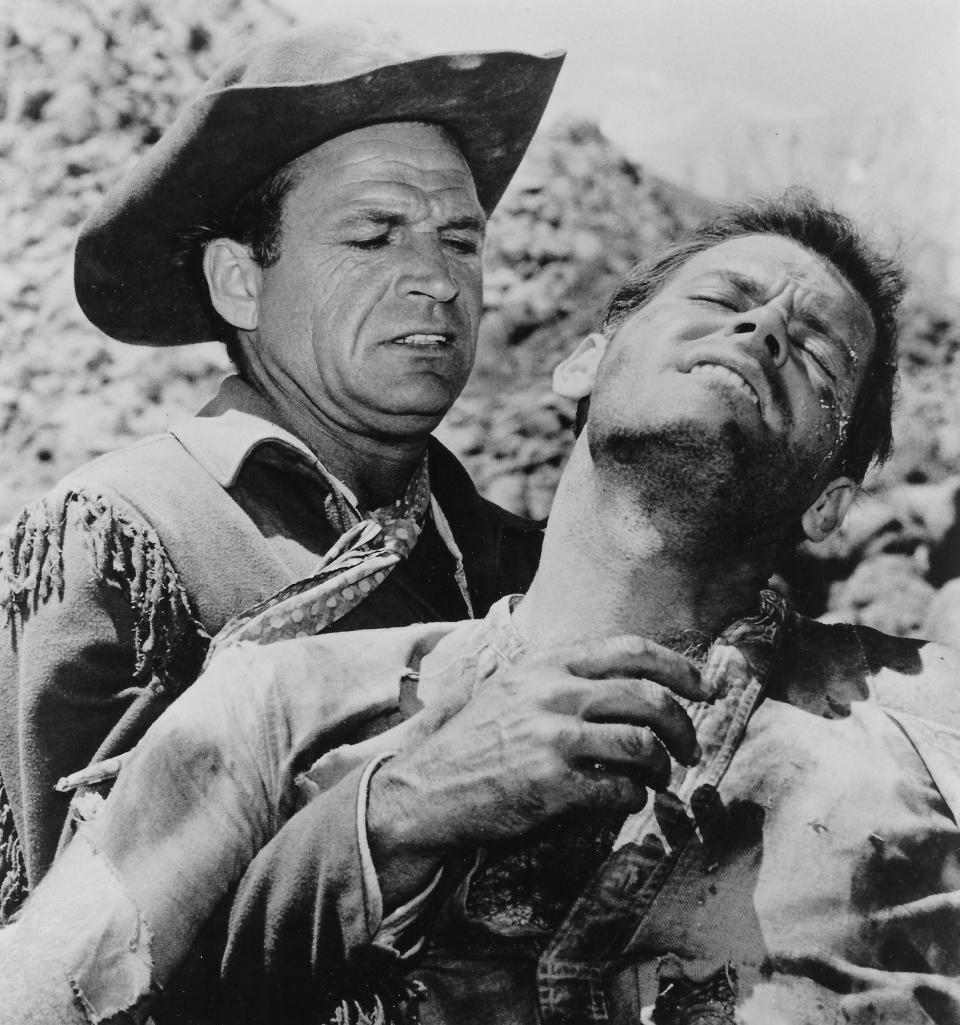
Famous face on television
McLean guest-starred in such TV Westerns as “Gunsmoke,” “Bonanza,” “Death Valley Days,” “Maverick,” “High Chaparral,” “The Virginian,” “Daniel Boone,” “Laramie,” and “Sugarfoot.” He also appeared in shows like “Perry Mason,” “The Fugitive,” “I Dream of Jeannie,” “The Streets of San Francisco” and “Ironside.”
“I think I’m one of the few guys who really needs to be an actor,” Huth once told a reporter.
The Huth family was thrilled to see “No. 5” on television. “Uncle Buster,” adored by more than 40 nephews and nieces, was a star!
Hill remembers when her brother appeared in an episode of Boris Karloff’s “Thriller.”
“He was stuffing a lady into a trunk,” she said. “It was funny sitting in a room with my mother because she would say, ‘Oh, dear, you shouldn’t do that. Don’t do that.’ ”
In 1960, McLean played the lead role in the NBC Western series “Tate,” a summer replacement for “Perry Como’s Kraft Music Hall.” He portrayed a one-armed gunslinger who had been wounded in the Civil War.
The part required him to wear a sling.
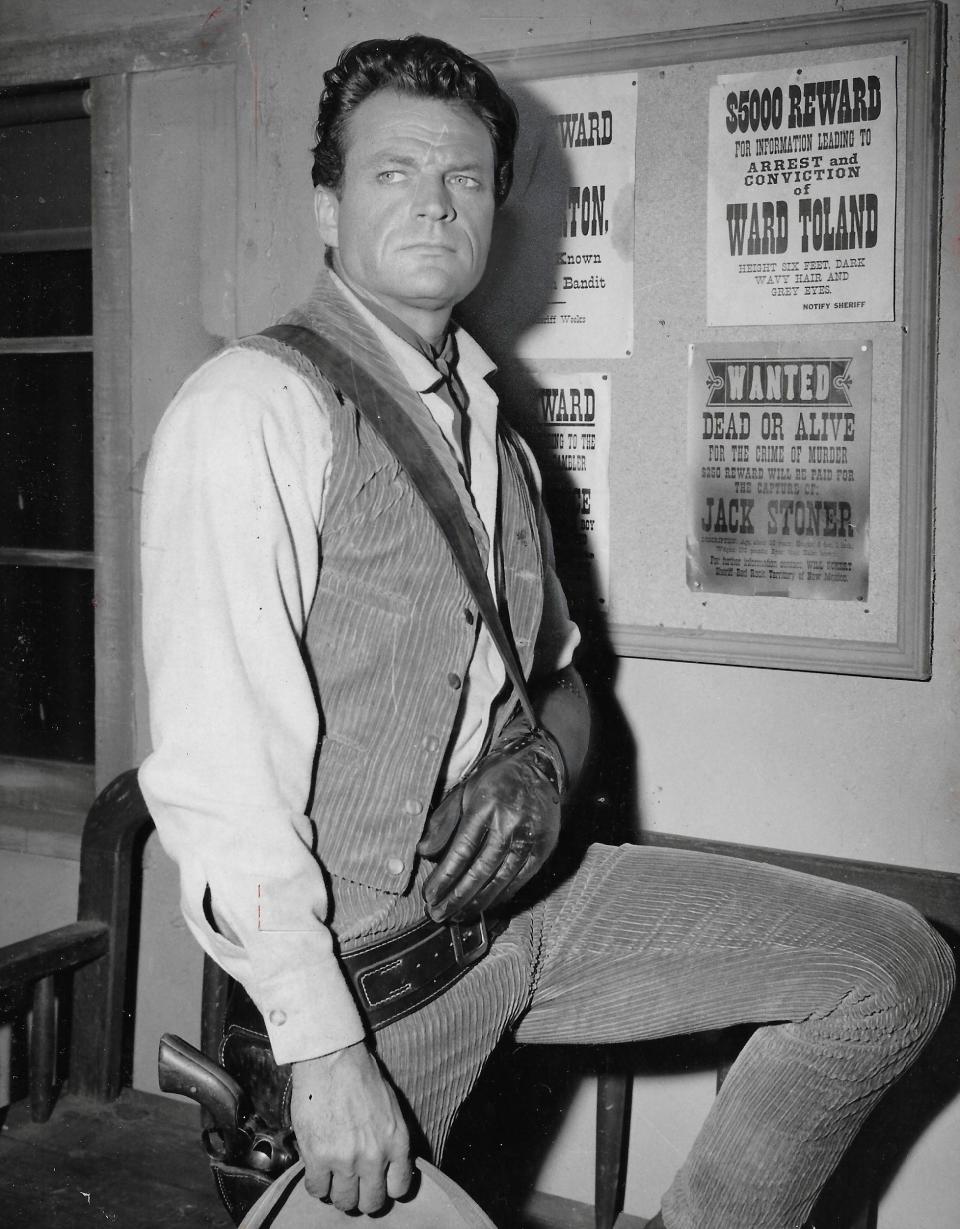
“I’ve played the role so long now it seems natural not to use my other hand,” McLean told an interviewer. “You’d be surprised how tiring and irritating it is to have my arm strapped down for hours at a time.
“I had to adjust my balance before mastering the trick of climbing on and off a horse with one arm.”
“Tate,” which featured early appearances by Robert Redford, Leonard Nimoy and James Coburn, had a 13-episode run but was not renewed.
The series wasn’t one of Hill’s favorites.
“I didn’t care as much for that because that didn’t seem like him,” she said.
Soap star and movie roles
McLean soared in recognition in 1965 as an original cast member of the NBC soap opera “Days of Our Lives.” For several seasons, he played handsome pilot Craig Merritt and signed autographs wherever he went.
Always neat in appearance, McLean was a fastidious dresser who wore expensive clothes with his name stitched inside. His frugal father just couldn’t understand it.
“My dad used to be furious to think that back then somebody would pay $5 for a pair of socks,” Hill said with a laugh.
McLean appeared in movies such as “Voyage to the Bottom of the Sea” (1961), “The Strangler” (1964), “Nevada Smith” (1966), “Kingdom of the Spiders” (1977) and “Deathsport” (1978).

Two of Hill’s favorites are “X-15,” a 1961 drama in which her brother played a test pilot, and “The Andromeda Strain” (1971), a sci-fi thriller in which he played a U.S. senator.
“I liked him in those,” she said.
McLean returned to Ohio as often as his could. At family gatherings, Uncle Buster regaled his nephews and nieces with tales of Hollywood.
“It would always be so much fun to have him come home because everybody loved to see him,” Hill said.
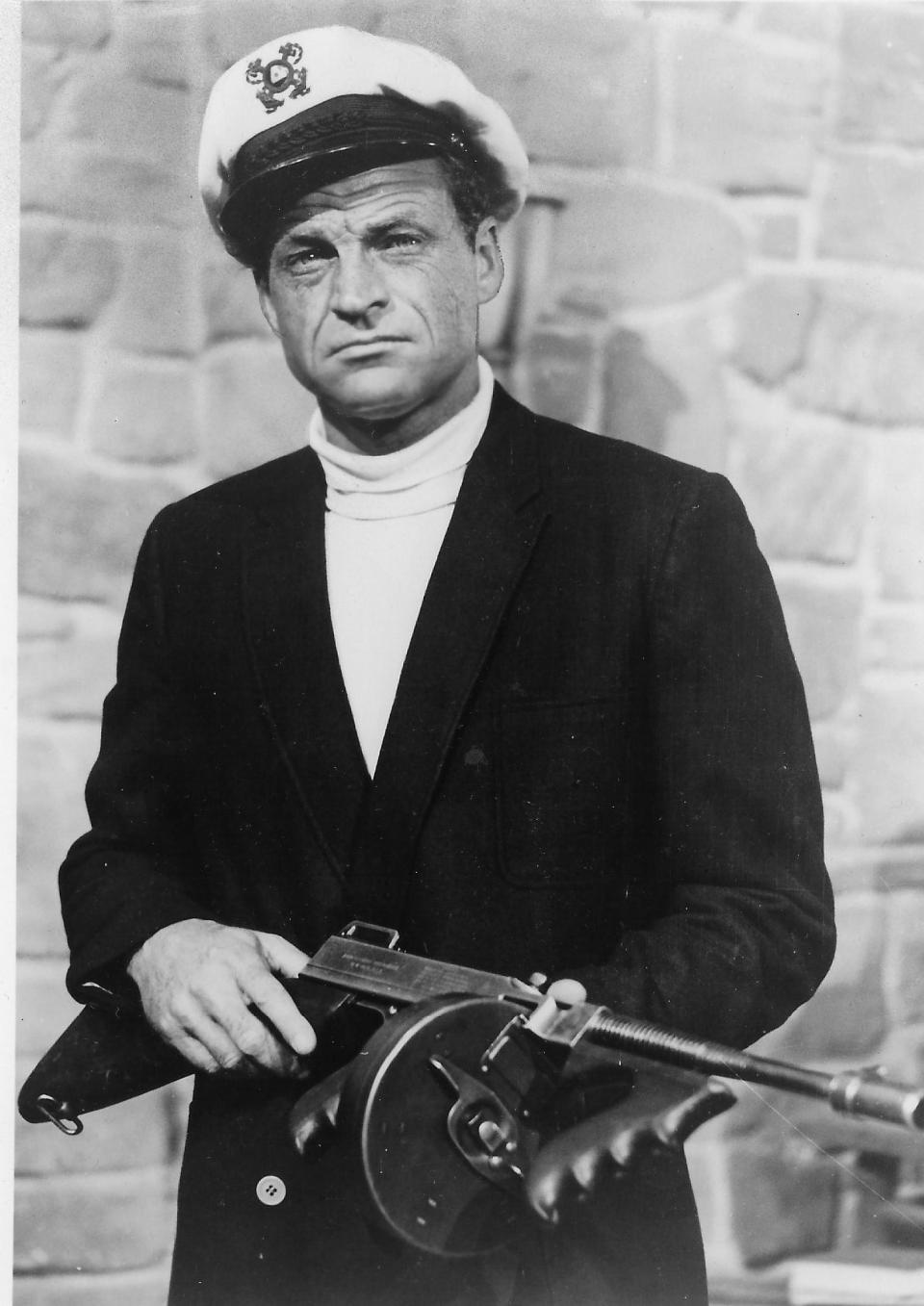
The Marlboro Man
Despite more than 50 credited roles, McLean became best known as an advertising icon. In the early 1960s, he began to portray the Marlboro Man in TV commercials and print ads for Philip Morris.
He wore a cowboy hat, rode a horse, drove cattle and smoked cigarettes while navigating the rocky landscape of Marlboro Country.
Excited friends used to call Hill to say that her brother was on television. She would race to the TV set to catch a glimpse.
“It was like having him home,” she said. “It was always nice to see him.”
When she was a little girl, she never saw him smoke. Now he was smoking like a chimney for advertising.
“When he was the Marlboro Man, one time he had to smoke 18 cigarettes to get just the right shot of the smoke coming out from the covered bridge,” Hill said. “He said by the end of it, he was so nauseous from smoke.”
The role came with a heavy price.
McLean portrayed the character into the 1970s before hanging up his cowboy hat. In the 1980s, he developed emphysema. In 1993, he was diagnosed with lung cancer.
The former Marlboro Man became an outspoken critic of smoking.
Hill spent a lot of time with her brother in the last months of his life and helped care for him his Beverly Hills home.
“One time we were discussing the fact that he knew he was dying,” Hill said. “I said, ‘You played the part many times of someone dying but now this is a real thing. We’re just going to help you through this.’ ”
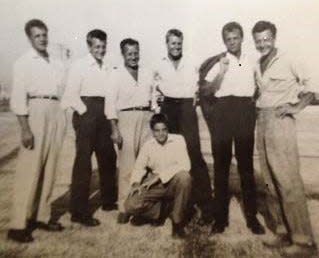
Several siblings were visiting when McLean suggested that they get together for a chicken dinner like they used to in Ellet. So they gathered in his room for a family meal.
“He had the tray across like an altar and then he proceeded as though he was saying Mass as a bishop,” Hill recalled.
McLean had played Bishop Jean-Baptiste Lamy in a 1970 episode of “Death Valley Days.”
“I was with him up until his death,” she said. “It was not a very pleasant thing to see. He was in a tremendous amount of pain.”
David McLean, better known to his family as Gene Huth and Uncle Buster, died Oct. 12, 1995. He was 73.
In 1996, his widow and son filed a wrongful death lawsuit against several tobacco companies, including Marlboro maker Philip Morris. A federal court dismissed the case.
If you want to see McLean’s work, just turn on a television. His movies and TV shows continue to be broadcast. There’s probably one airing right now on cable.
Barbara Hill, the last of the Huth children, said her mother and father deserve credit for raising 12 good citizens and 12 good people.
“My parents must have done something right,” she said.
In their honor, the family established the Henry & Laura Huth Charitable Foundation, which works to improve the quality of life for troubled and at-risk children.
Donations have been made in memory of more than 150 loved ones.
Among the names is Eugene J. Huth.
Also known as Gene.
Also known as Uncle Buster.
Also known as David McLean.
Also known as the Marlboro Man.
For more information visit https://henryandlaurahuthfoundation.org/. Mark J. Price can be reached at mprice@thebeaconjournal.com.
More: Geauga Lake revisited: Vintage photos of lost amusement park
More: Springfield Township landmark is anything but run of the mill
More: Local history: Coaster crash was beginning of end for Springfield Lake Park
This article originally appeared on Akron Beacon Journal: Marlboro Man was cowboy from Akron

